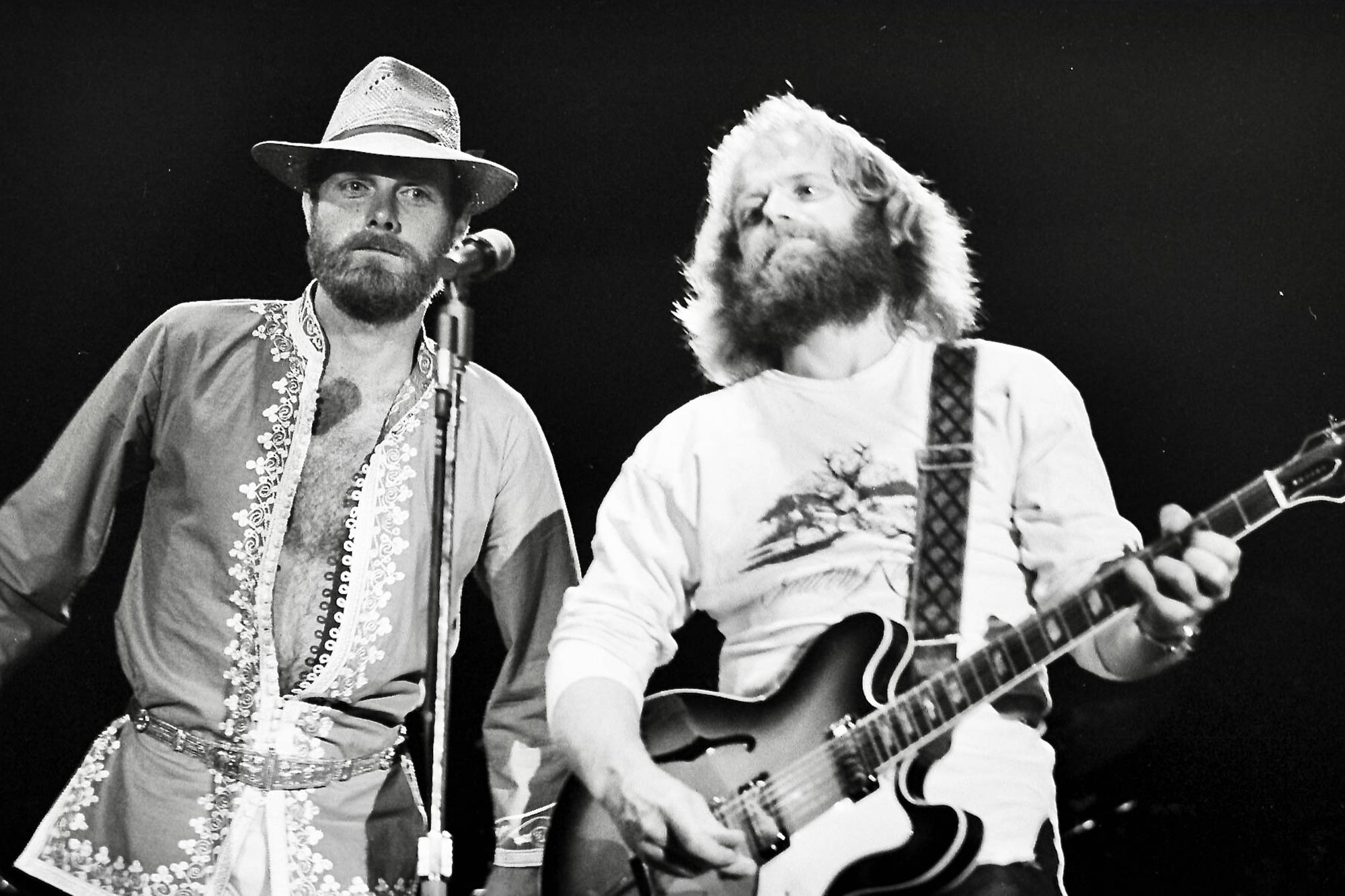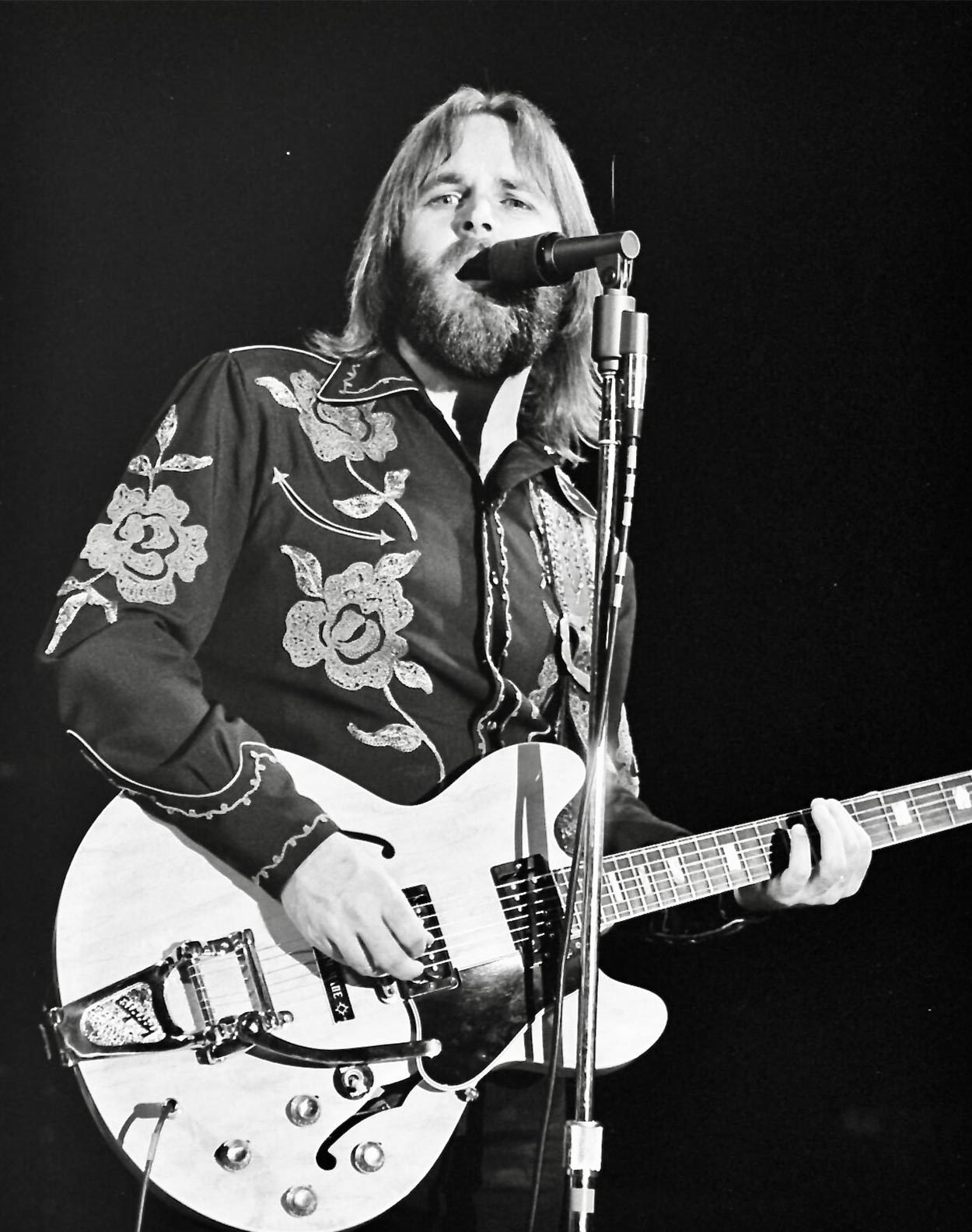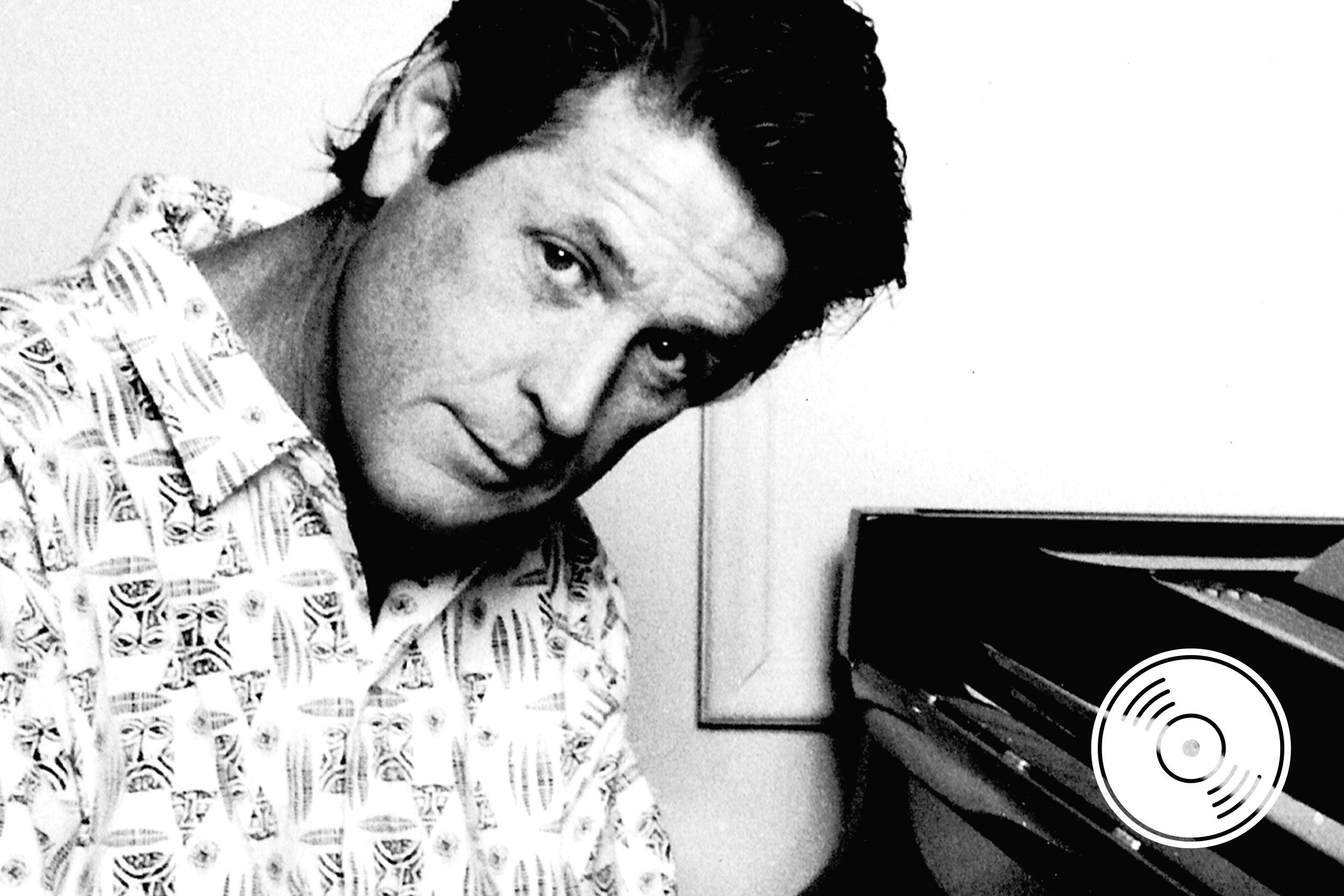Composer, bass player, singer and Beach Boy Brian Wilson drew deep on American traditions.
“Brian Wilson was an incredibly important musical figure,” said Jack Hamilton, a professor of Media Studies at the University of Virginia. “He made a lot of contributions to post-war American pop music, introducing innovations in harmonic sophistication and orchestral arrangement.”
Wilson, who died last week at age 82, founded the Beach Boys with his brothers Dennis and Carl, cousin Mike Love and family friend Al Jardine. Learning to harmonize as children, they built their repertoire on a foundation of surfing and car songs. “Surfin’ USA,” “409,” and “Fun, Fun, Fun,” were designed to be played loud on transistors and AM car radios. But musically, Brian Wilson wanted more.

Wilson family cousin Mike Love, left, and Al Jardine enjoy antics on stage during a 1975 performance of the Beach Boys at UVA. (Photo by David M. Skinner, Special Collections, University of Virginia Library)
Wilson’s father, Murry, introduced him to music, and he developed an ear for it.
“He heard the possibilities for rock and pop music to go in directions that had been hinted at before by other people,” Hamilton said. “In terms of the chord structures, composition and arrangements, his approach to the recording studio and turning the studio into a real element of the compositional process was ahead of his time in harnessing new studio technologies.”
The Beach Boys, who came from a tradition of family bands such as the Carter Family and The Andrews Sisters, signed with Capitol Records and used the best session people on the West Coast, known as The Wrecking Crew.
Wilson pulled together different musical traditions, processing and synthesizing them into his music.
“He’s drawing from traditions such as jazz and older symphonic pop, artists like George Gershwin and Duke Ellington,” Hamilton said. “He drew on a lot of the history of American music, bringing it into this mid-‘60s rock ’n’ roll context.”
Wilson had a tumultuous relationship with his father, a stage parent who apparently bullied his children and frequently belittled his eldest son’s accomplishments.

Carl Wilson, one of the three Wilson Brothers, sings during a 1975 concert with the Beach Boys at the University of Virginia. (Photo by David M. Skinner, Special Collections, University of Virginia Library)
“Brian Wilson had a very complicated relationship with his father,” Hamilton said. “There was a lot of trauma in his childhood. But, for better or worse, it’s an open question of whether Brian Wilson and the Beach Boys, early on, would have gotten to where they were without this incredibly ambitious patriarch figure who’s pushing them and managing their careers. It was a tragic relationship, and yet, you can’t tell the story of the Beach Boys without the story of Murry Wilson.”
Wilson experienced mental illness, which emerged under the stress of touring, writing and recording. He had a nervous breakdown while on tour and left the road.
“It was unusual in 1964 for a rock ’n’ roll artist not to be out on the road,” Hamilton said. “But it leads to him focusing a lot of his attention on recording and making these studio masterpieces. It leads to what many would argue is the most fruitful and influential few years of his career, when he makes ‘Pet Sounds’ and ‘Good Vibrations.’”
Hamilton said people tend to romanticize the ‘tormented genius’ trope, but he noted there were plenty of brilliant musicians who did not have mental illness.
“Brian Wilson was someone who lived a very difficult life, dealing with his demons, many of which had to do with mental illness,” Hamilton said. “He also had substance abuse problems at various points, also quite a common story in music. But I hesitate to draw it as a causal relationship. What we know about mental illness is that it’s never a neat or a straight line.”
As Wilson matured, so did his music. To Hamilton, the song “Don’t Worry Baby,” the B-side of “I Get Around,” was a turning point in the band’s music.










